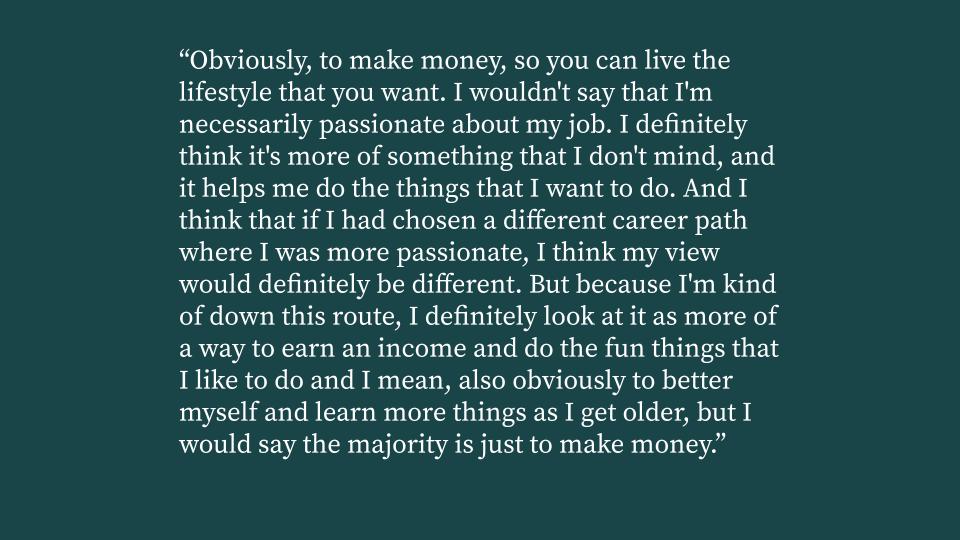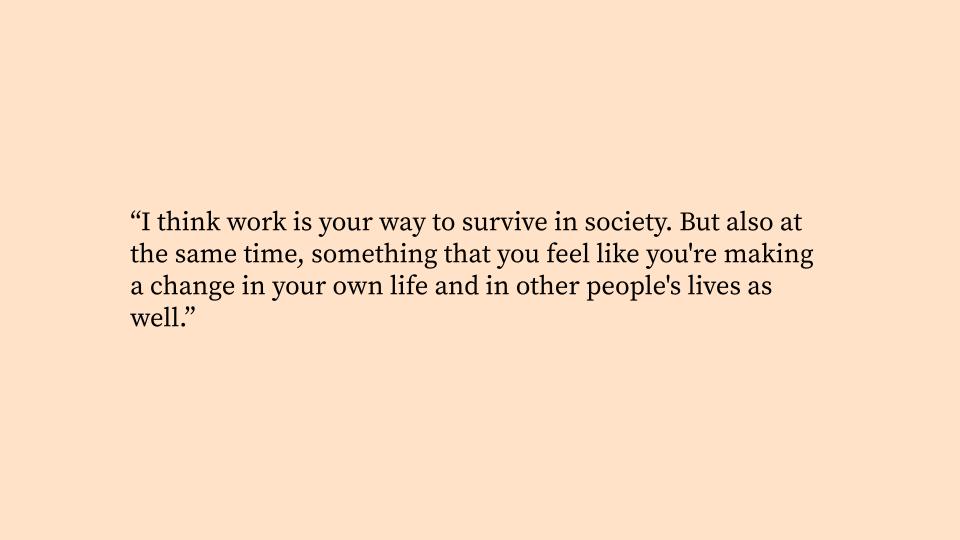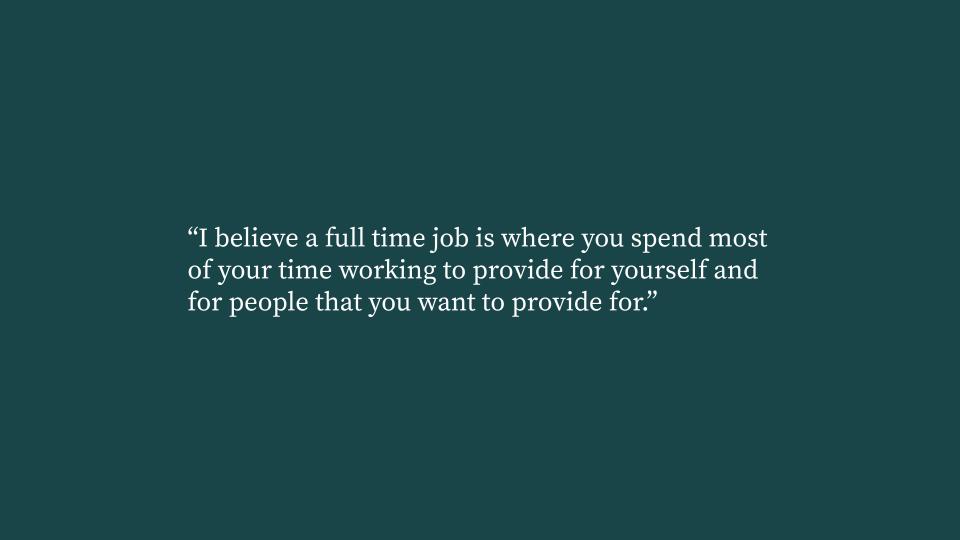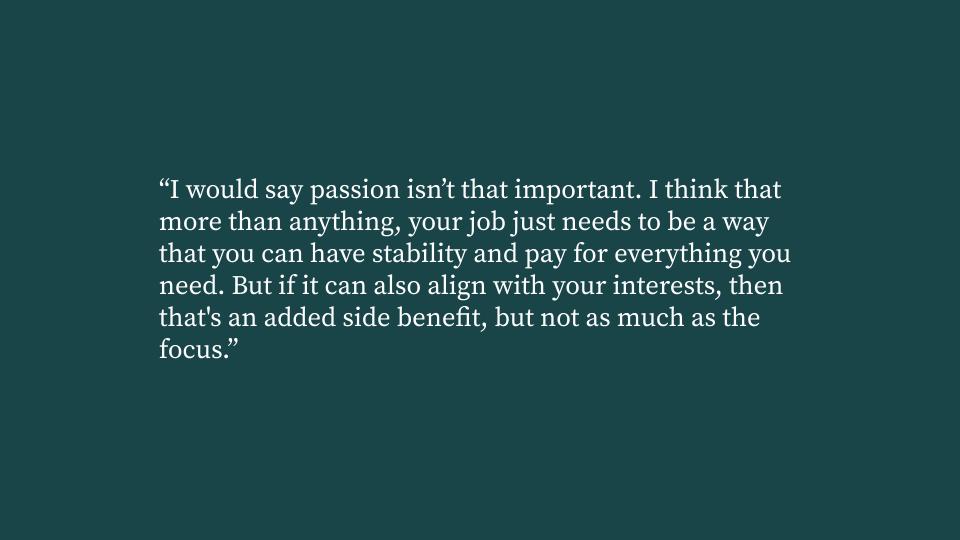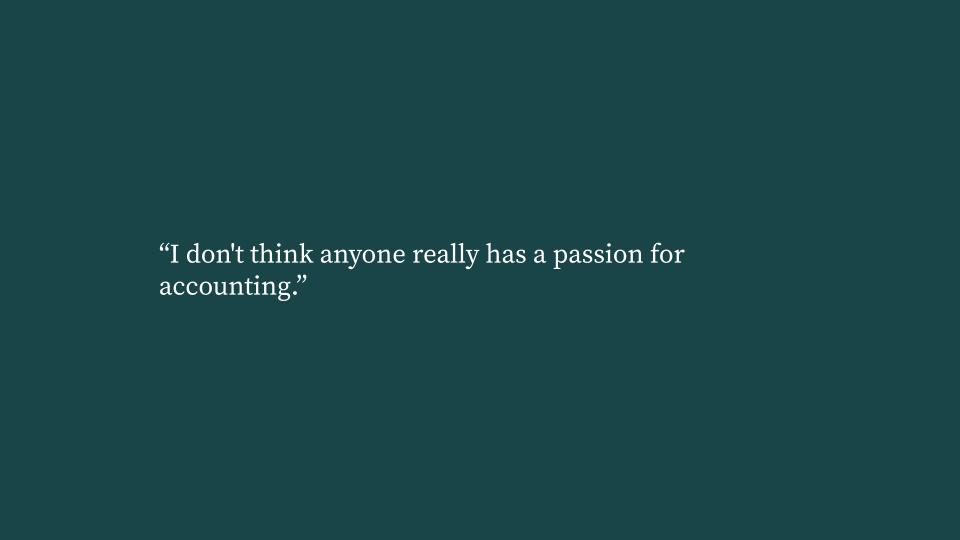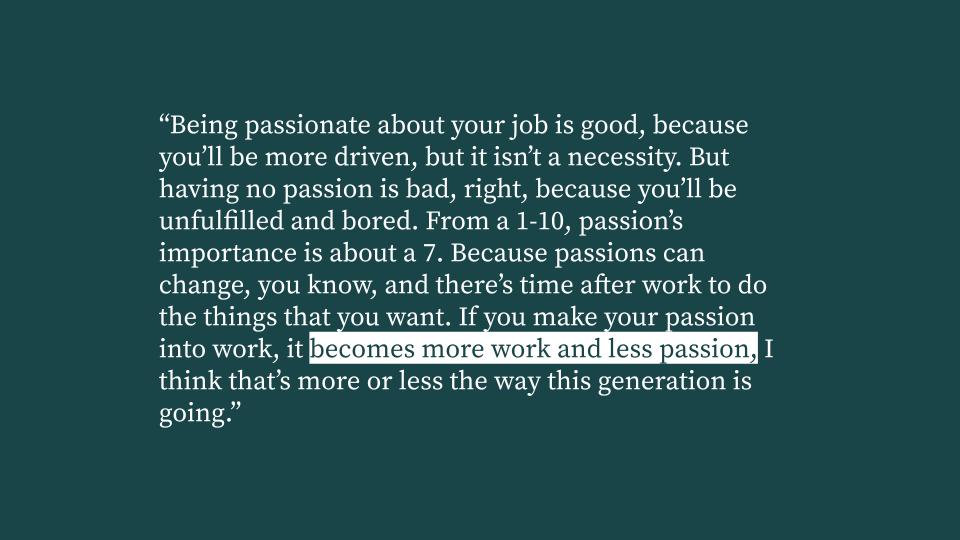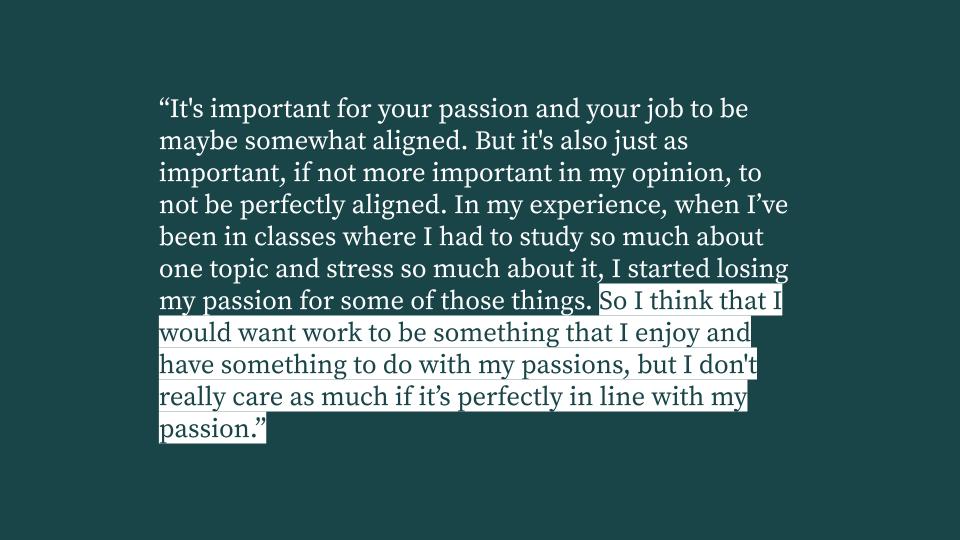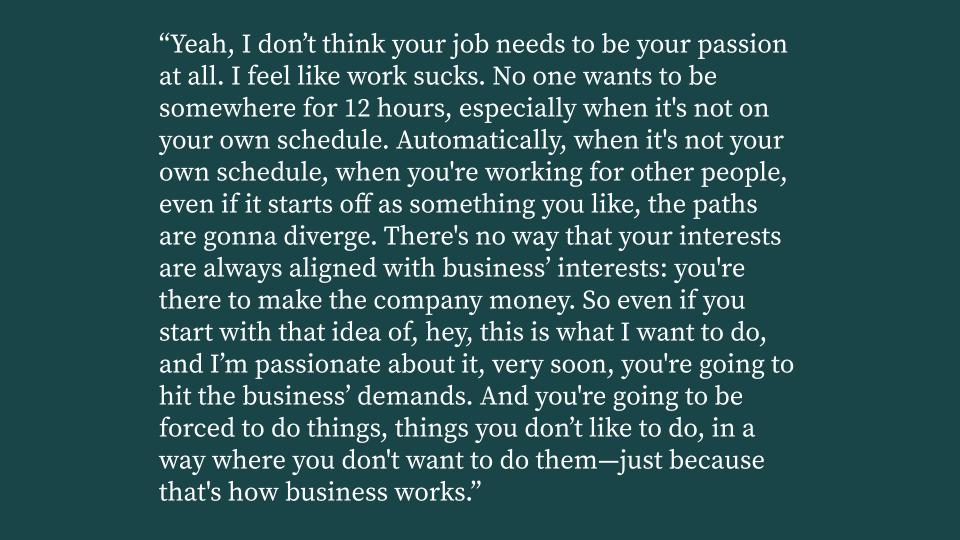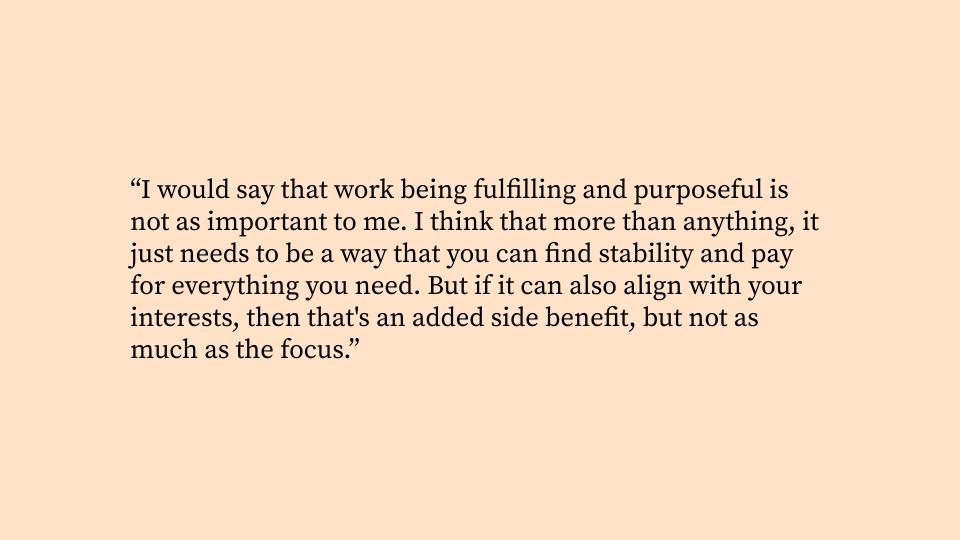People work for a lot of different reasons.
The interviewees who participated in the initial phase of this project worked, or are planning to work, in a variety of different careers. From phone center operators to quality engineers, each person is pursuing their chosen job for different reasons.
However, as you read through their responses, you may notice that interest in one’s job is generally balanced with a number of personal and structural motivations. People who shared their experiences discussed the need for job security, the desire to pursue careers with high earning potential, and other factors that influenced their choice of career. Their responses reveal that our passion for or interest in our work is often tempered with our desire to balance work with other things we value in life.

While people choose their jobs for many different reasons, I found that people work for four primary reasons, or a combination of those reasons.
- The first is a desire to invest in life outside of work, whether in the form of travel, spending time with family, or contributing to bettering the world.
The second motivation identified was a desire to help others and make the world a better place through their work.
This was a small percentage of the interviews in the original interview pool, perhaps reflecting the limitations of the recruitment pool, but most people didn’t think making the world a better place was the motivating factor for them working.
However, almost every interviewee found it to be a positive factor if they got to help others through their jobs.
The third reason people worked was to provide for their own, or their family’s, basic needs and lifestyles.
Throughout all the different reasons people want to work, if they didn’t choose this as the most important reason, which many did, it was always mentioned in their answers.
It seems like an obvious conclusion, but people mostly work to survive. Even throughout different forms of interest and purpose, workers usually balanced out the desire for fulfilling and purposeful work with the desire to provide good lifestyles for themselves and their families.
Lastly, some people people worked to grow as a person, to learn new things, or to structure their lives.
Working can be a form of fulfillment, and most people shared that having an engaging and exciting role was one of the reasons that they worked.

Throughout all these responses, when asked “is your job supposed to be your passion?”, nobody said yes. Fifteen out of fifteen interviewees said that work wasn’t their passion or their life’s purpose.
In fact, they often shared that it was even more important for their job to not be their passion, because they found it led to burnout, disappointment, or the fading of that passion when done for profit.
It’s important to note here, however, that passion is distinct from fulfillment. You can find your job to be fulfilling, but not consider it to be your passion. Fulfillment can mean that you feel good after you finish work, but it doesn’t mean that work is your life.
One person explained it as reconciling passion and sustainability:
“Yeah, of course, work has to be fulfilling, or at least something that’s sustainable. For example, I could be a stripper, right? I could get a lot of money from stripping, and make around the same amount as I do now. But I don’t get insurance. I have to physically exert myself, for like five hours straight on the pole. And also, I might not be able to do it later on. So that’s an example of high compensation that isn’t sustainable. Obviously, I think something that you enjoy and is sustainable is very important. But I think that fulfillment isn’t just in terms of passion and interest, but also compensation and the people that you work with.”
But on the other hand, interviewees overwhelmingly say that while work doesn’t have to be your passion, don’t choose something you hate.
Choosing something you hate or you don’t care about at all becomes unhealthy, and leads to burnout.
One interviewee put it:
“I would say it’s probably more important for my job to be in line with my passions more than how much I get paid. I think it’s really important in terms of mental health and being happy with what you’re doing and feeling fulfillment. If you’re not doing something that you care about, I feel like that’s very difficult. “
However, workers recommend against placing too much emphasis on your work as being your purpose, as it can just as much lead to burnout and self-esteem problems.
As one interviewee put it:
“I definitely want to do something that makes a difference for people and that I’m excited to do. But I don’t think my work is supposed to be my passion. I’m happy that my work feels like I’ll make some impact on people. But it‘s not going to tie so much to my self worth. So if I do fail, I’m not going to feel like a total failure and can’t execute on anything.”
Question: What do you work for?
When answering this, consider who or what you’re working for. What do you look forward to at the end of the day, what makes your work valuable?
I work to survive. It sucks, but that’s just how life is.
I definately work for my family. If I didn’t have my family, work would be meaningless.













